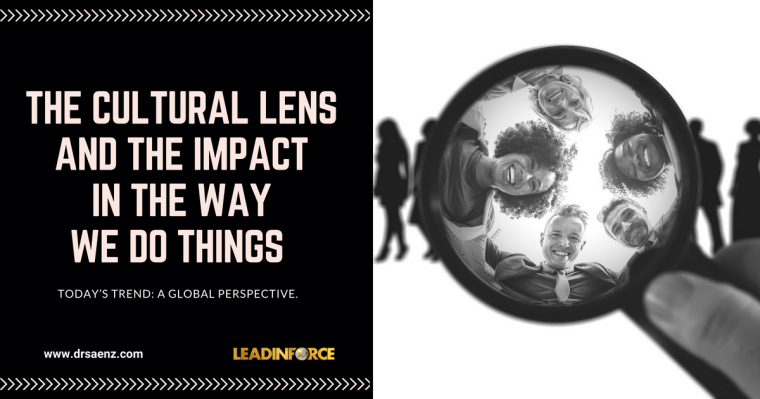The cultural lens greatly impacts the way we do things. Culture is often compared to an iceberg, in the sense that what we can only perceive what above the surface. The top of the “cultural iceberg” is made up of things we can observe and of what people allow us to see such us what they wear, do, eat, and say. How can we relate more deeply with people?

Unfortunately, the large portion of the iceberg lies below the surface and it is not visible. That part is made up of values, assumptions, personality, beliefs and other characteristics that shape and drive behavior.
In order for us to relate more deeply to others, it is essential to learn how to better connect with people in a meaningful way. In other words, it’s necessary to get close enough to people to be able to unleash the elements that shape and drive their behavior and so we can get to know them.
Are you prepared to have meaningful relationships with others?
In order to relate in a more significant way to others, it is essential to first understand that hidden values, assumptions, and beliefs shape and drive the majority of your daily activities such as:
- Work patterns,
- Interactions with managers and subordinates,
- How we handle work-related problems or disagreements,
- The way of socializing outside of work with colleagues.
Furthermore, our gender-appropriate behavior, our concepts of right and wrong, our communication style both one on one and in meetings, how we handle personal problems at work, etc.
Second, we must be aware that when someone’s behavior is observed and interpreted with our own set of assumptions and values, miscommunication and misunderstandings will happen. These outcomes are powerful enough to reduce productivity and effectiveness in any team or organization.
How can the cultural lens help you succeed in your relationships?
There are several principles that could help you improve your relationships with others:
The first element that you can use to improve the way you connect with others and influence them, is to increase your cultural awareness. It is a fact, that is worthy to remember, that we do not see the world, communicate, or behave in the same way as others do.
The second element that will allow you to excel in your relationships with others is acquiring self-cultural knowledge. To understand others it is essential to understand ourselves – where we come from and why we do what we do. Additionally, understand and identifying our present culture and leadership styles.
A simple exercise that can help you have self-cultural knowledge is: to first, learn more about your ethnic origin and culture. Then, identify those daily habits that you have that are more connected to your ethnic culture than from your own decision making such as the way that you approach a stranger or how you greet people.
The third element that will increase productivity, effectiveness, and relationships in any team at any level, is the development of an environment where there is a culture of success. The environment where you grow has a direct influence on your productivity and ability to be effective.
At the corporate level, I have observed how there are different perceptions about dealing with personal problems at work, which can drastically change the team’s culture. Some people think that you should not bring your personal problems to work and that you should handle them outside of your work schedule. While others believe that having more understanding of your personal problems by supervisors and managers will allow them to better manage productivity and provide help to employees at critical times.
The cultural lens has a great impact on the way we relate to others. You can increase productivity and effectiveness in your teams and organizations by increasing cultural awareness and the ability to create a culture to succeed.
If you want to minimize misunderstandings, maximize productivity and results by developing your cultural awareness. Let’s have a conversation.
You can start achieving better results today! Let’s talk about how LEADINFORCE can benefit you, your team and your company.
Question: Are you developing a cultural awareness?
